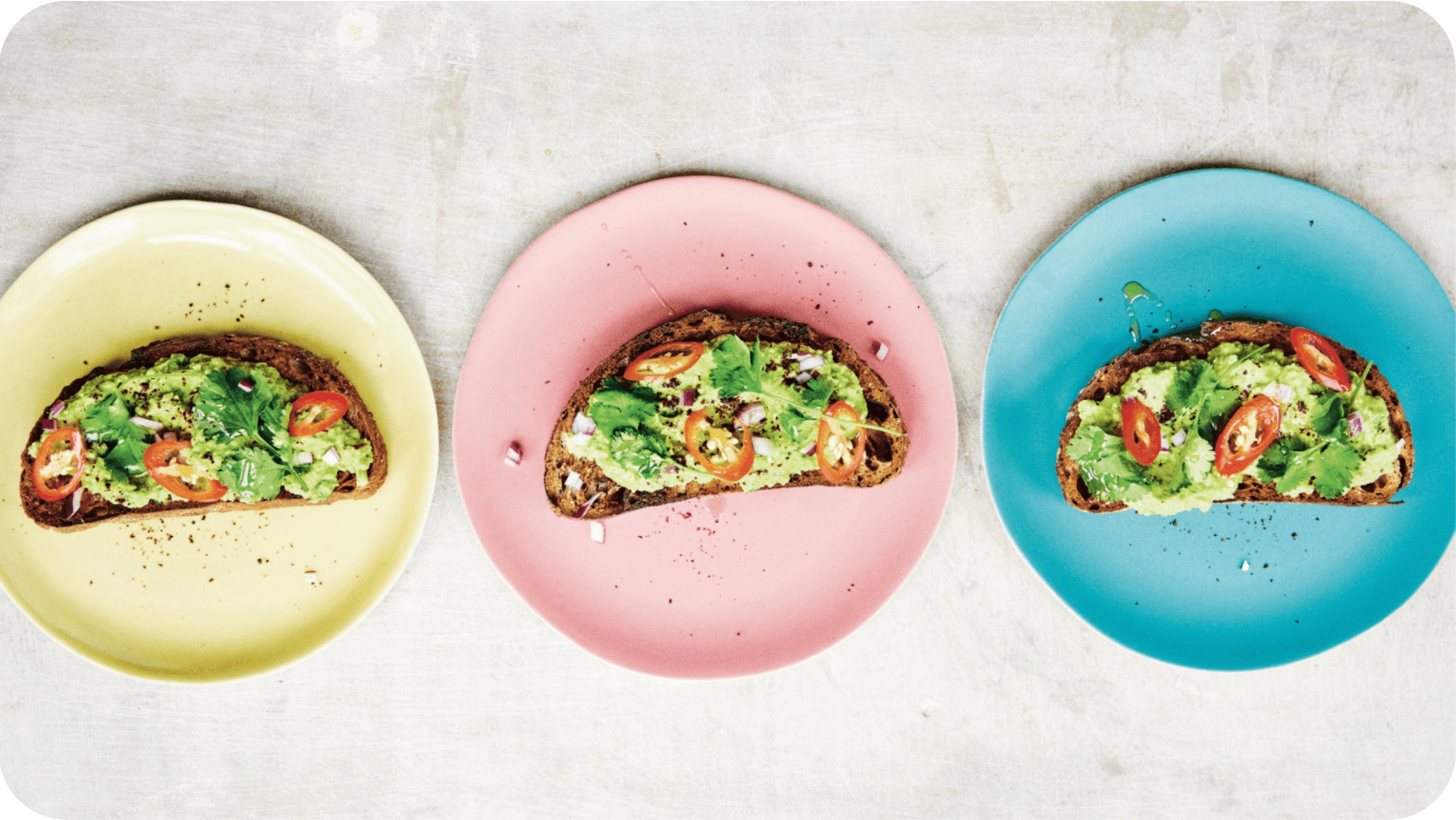Tom Hunt: The eco-chef's how-to guide for fighting food waste
For over a decade, Tom Hunt has utilised his career and entrepreneurialism as an eco-chef to raise awareness of the food waste crisis in the form of events, businesses and now his very own cookbook. Through these endeavours, Tom hopes to inspire everyone to live a far more eco-conscious life, whilst educating us about the unsustainability of our current food system. Working alongside organisations like The Soil Association and Slow-food International, Tom has done the research and sits down with V-Land to share his knowledge and experiences.
V-Land UK (V-L): V-Land would like to express our gratitude to you for taking the time to chat! We feel very aligned, what matters to you, matters to us too. Let’s start by talking about your latest book Eating for Pleasure, People & Planet. What can readers expect from start to finish?
Tom Hunt (TH): I’m really happy that you’ve invited me to be able to do this, so thank you! What people can expect from my book is a comprehensive guide to sustainable eating. Over the last 10 years, I’ve been devising my food sustainability philosophy which I call ‘Root to Fruit’ eating. I coined the term in 2011 when I started working in food waste, as a way of describing this idea of complete consumption and zero waste. Through eating the whole vegetable, including the peel, stalks, leaves and everything in between.
I quickly realised that food waste was just the tip of the iceberg and that it was a symptom of a broken food system. So, I expanded ‘Root to Fruit’ eating into a holistic food sustainability philosophy that taps into every aspect of the food system. Through working with a lot of the incredible climate scientists over the last several decades and with different nutritionists, I put together the ‘Root to Fruit’ manifesto. Taking that amazing work that’s been done by these academics and turning it into an actionable manifesto and plan, which became the book!
V-L: You have taught cooking classes at Plant Academy, the leading plant-based cooking school. Can you tell us more about this experience, and what you have learned about plant-based cooking?
TH: Well, writing Eating for Pleasure, People and Planet taught me a lot about plant-based cooking. I was vegetarian whilst I was writing the book, but my family has always been plant-based by default. Writing this book taught me how incredibly resourceful plant-based cooking is. It makes sense to cook this way even if you are not vegan because the foundation of a good, healthy diet is plants. It also fitted well with my zero waste philosophy, such as using things like aquafaba, flaxseeds and chia instead of eggs in recipes. Any of those products are cheaper and have a lower overall impact compared with eggs.
I was thrilled to be invited to lead and teach a workshop called ‘Working with Purpose’ at the Plant Academy. What I learnt about teaching in that environment was that it’s a really interesting area of food. There is a lot happening within the plant-based movement, and it was really exciting to be invited to that space and make a contribution.
V-L: Having watched your Borlotti Bean Stew with Carrot Top Pesto video on YouTube, we noticed you used the leaves of the carrots to form the basis of the pesto to reduce food waste. As the founder, can you tell us more about your campaign ‘Forgotten Feast’ and your efforts to raise awareness of food waste in the UK?
TH: Firstly, it is definitely worth saying that carrot tops are super nutritious. They have higher levels of vitamin K and C than the root itself! It’s important to recognise that often the parts we throw away are actually the most nutritious - the peelings too! Many lack fibre in their diets and the skins are full of it.
‘Forgotten Feast’ is essentially a campaign for sustainable eating. I started creating these big food waste banquets in 2011, saving food and serving it to people and raising money for charity. It’s the reason I’m here today, working as a food writer and public speaker. I thought rather than just tell people what was wrong with the food system, I wanted to show them the solutions and also celebrate those solutions.
V-L: Do you feel from your experience with raising awareness of food waste since 2012, that the issue has improved at all? What are some really easy culinary choices or swaps that all of us can make today to contribute to the ongoing food waste issue?
TH: I think food waste is still a major problem, but there are some positive statistics to suggest that waste has been reduced. ‘Root to Fruit’ eating, although it’s based on science, is a value-based approach. I think it’s as simple as changing our values. The three key principles are: eat for pleasure, eat wholefoods and eat the best food you can. By adopting those values, you’ll instantly see an improvement in your own health and your larger impact on the planet. Simply by cutting through all the noise and complexities of our food system and focusing on cooking with love which helps you make the right choices.
V-L: Sustainability is at the forefront of operating your highly acclaimed Poco Tapas Bar in Bristol; from strictly using only seasonal, fresh and local produce to working with suppliers that follow the ‘Slow Food Values’ of good, clean and fair produce. You’ve managed to achieve great success, with recognition as 2016 and 2018’s Sustainable Restaurant of the Year as well as Best Ethical Restaurant at the Observer Food Monthly Awards in 2013! Tell us what all this recognition meant to you?
TH: I set up Poco in Bristol whilst building the social enterprise behind ‘Forgotten Feast’ because I didn’t want to have one set of values for the campaign and another set for the restaurant. So, utilising social enterprise as a blueprint for Poco pushed us to create a zero-waste business that was working with incredible produce we sourced from local farmers. Including a ‘Root to Fruit’ vegan menu.
Those awards to the team and I were like receiving Michelin stars because our efforts were always focused on sustainability. They gave us credibility and certify that we are the real deal which helps.

Jenny Zarins
V-L: Pertaining to this discussion, could you share some advice for any business owners out there struggling to instigate the growth of a more eco-conscious and successful establishment?
TH: I think it’s important to remember as a business, we’ve got a responsibility not just to our customers but to our suppliers and the world at large. Essentially, we must take responsibility for our actions as human beings, and as nature beings too. When we are working within the food system, our impact is multiplied by the number of mouths we feed. So as a business grows, so do our responsibilities.
It’s also important to realise that it doesn’t mean your profits have to necessarily take a hit. Keeping the three pillars of sustainability that are people, planet and profit aligned, just means you may have to take a different route sometimes. Not accepting the cheapest product, but coming up with a clever way of achieving the same profit margin from putting more plants on the menu, which is essentially cheaper; such as organic pulses and legumes. That will improve your relationship with your customers and suppliers.
V-L: It has been amazing getting to know more about you and your career Tom. Let’s end our chat by asking about an Instagram post you shared on your page at the start of the year: “Love and Reciprocity” was your New Year mantra for 2023. What do you feel people can learn from and look towards when expanding this mantra beyond personal relationships, to wider society?
TH: I’ve learnt about spiritual reciprocity through reading Braiding Sweetgrass by Robin Wall Kimmerer. I found it to be a really interesting concept that just one simple word like ‘reciprocity’ can mean so much. Especially within the realm of food and nature. It’s easy to forget that food is a part of nature, and we are nature ourselves. When we don’t act with reciprocity by just taking from the Earth, we leave ourselves in this situation we’re in. Ultimately destroying the planet. So, by acting with reciprocity and giving thanks for what we have taken and even exchanging some kind of gift in return, to loosely paraphrase a line from Robin’s book: “The Earth will last forever.”
We hope Tom’s wise words regarding ‘Root to Fruit’ eating, giving back to the Earth and making small, yet effective lifestyle changes has inspired you to be more mindful of the waste and soil degradation we collectively contribute to; check out our interview with Rob Percival, Head of Food Policy at the Soil Association who discusses the biodiversity crisis nobody is talking about (except our friend Tom Hunt of course!). If you fancy a bit of gardening as the days get warmer, check out how veganic gardening can save the planet - from windowsills to allotments.
